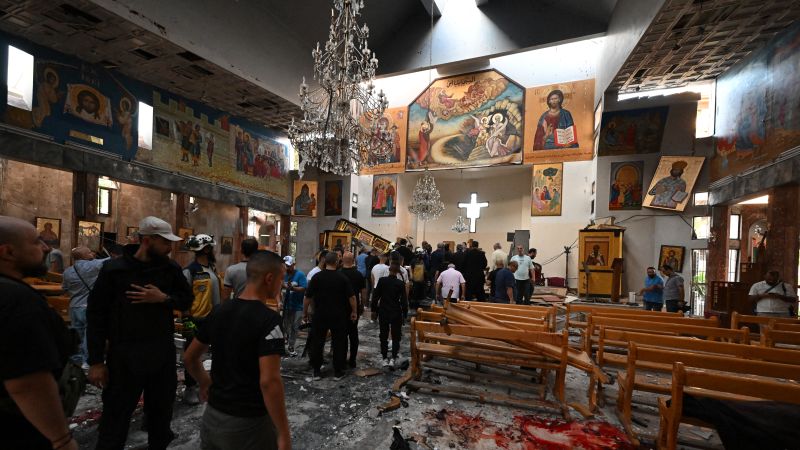A devastating suicide bombing at a church in Syria’s capital on Sunday night has left 20 people dead and more than 50 injured, marking one of the deadliest attacks in Damascus since the fall of the Assad government in late 2024.
The explosion took place at Saint Mar Elias Church in the Dweila’a neighbourhood of Damascus, during evening prayers. According to Syria’s Interior Ministry, the attacker, identified as a member of the Islamic State (ISIS), entered the church armed with a firearm, opened fire on worshippers, and then detonated an explosive vest.
The Ministry of Health confirmed on Monday that 20 people were killed and 52 wounded in the blast. Emergency responders swiftly transported victims to local hospitals while security forces sealed off the area to conduct forensic and investigative work.
Minister of Information Hamza Al-Mustafa condemned the bombing as a “cowardly act of terrorism” and extended his condolences to the victims’ families. In a post on X (formerly Twitter), he said, “This crime goes against the values of equal citizenship that we all share.” He further pledged continued efforts by the government to eradicate extremist groups from Syrian territory.
Since the fall of Bashar al-Assad’s government in December 2024, Syria has experienced a period of political transition and intensified security operations aimed at eliminating remnants of ISIS and other militant factions. The new administration has deployed forces across hotspots, including the conflict-prone northern province of Aleppo, where clashes have recently intensified.
Despite tightened security measures and large-scale counterterrorism operations, Sunday’s attack highlights the persistent danger posed by radical groups in the region. Analysts note that ISIS has remained active in rural and border areas, occasionally staging attacks to disrupt peace efforts and demonstrate their continued presence.
The bombing at Saint Mar Elias Church is the first major terror incident in the capital under the new government, raising concerns about the stability of post-Assad Syria. It also underscores the enduring vulnerability of civilian spaces, particularly places of worship, to extremist violence.
The international community has begun to respond, with condemnation pouring in from regional governments and human rights groups. Calls have been made for increased security cooperation and humanitarian support as the country continues its recovery from over a decade of civil war and political upheaval.
Investigations into the attack are ongoing, with Syrian authorities stating that counterterror units are pursuing possible accomplices. Meanwhile, citizens in Damascus and across Syria are grappling with renewed fears about safety and the fragility of recent political gains.

